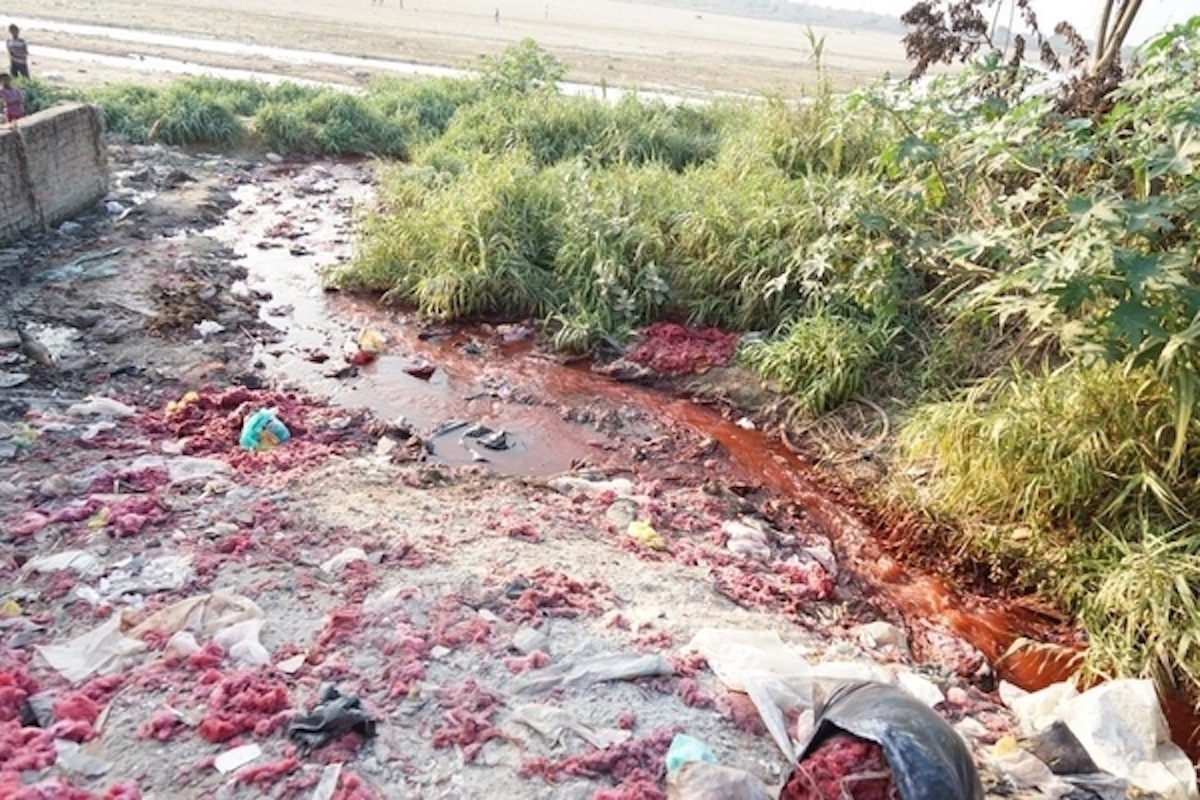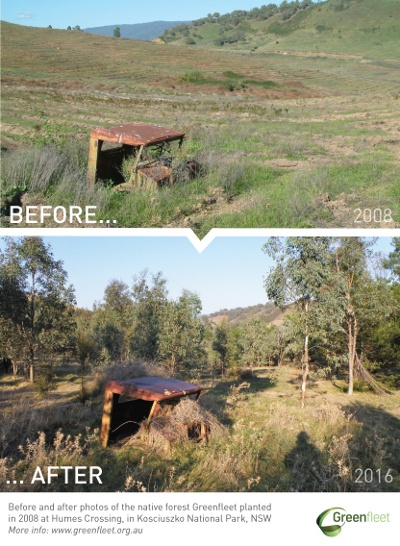
Celebrate Earth Day by reducing environmental your impact
Reduce your impact on our planet by following these easy and cheap tips. You don't have to change your life, but small changes can help our planet.
Waste, climate change, the ozone layer, global warming, carbon emissions. These are words we often read, and they’re kinda scary. As an individual, you feel like there isn’t anything you can really do to make a difference.
Or is there?
You can easily and cheaply reduce your environmental impact on our planet by making a few quick and easy changes, even if you live in the city and can't grow all your own fruit and veg.
So simple, you won’t even notice the difference.
- Lower your heating use
Layer up! With winter coming, reduce your power consumption by wearing warmer clothes indoors. Invest in a nice cosy pair of slippers and a quality dressing gown to stay warm this winter!
If you are using a wood fire, make sure to use non treated wood. “Burning the wrong wood or unseasoned wood creates heavy black smoke and creosote build-up, both toxic to the environment” - Chuck Weiss from Woodchuck Firelogs
- Buy and contribute to the secondhand market
Before you throw out your unwanted items, look through and donate what you can to op shops and secondhand stores. One man’s trash is another man’s treasure, so think before you throw!
- Stop buying crappy fast fashion
WHAT IS FAST FASHION?
Fast fashion is a term used for clothes that are produced quickly after appearing on the runway to the everyday consumer, the idea being the supply chain is extraordinarily responsive to consumer demands and trends. With that speed of production fast fashion is also typically available at a low (dollar) cost.
TEXTILE DYES
Textile dyes have a devastating impact on our planet, with textile dyes being the second largest polluter of clean water globally.

COTTON PRODUCTION
In order to be able to sell clothes so cheaply, producers need to be able to ensure they can grow large and cheap cotton crops. To acheiev this, a considerable amount of cotton grown is genetically modified to be resistant to the bollworm pest. But this can cause problems down the line, such as the emergence of superweeds, which then require stronger and more toxic chemicals and pesticides.
POLYESTER MICROFIBRES
Cheaply produced polyester fabrics shed microfibres that pass through our sewage and wastewater plants and into our waterways. They may be minute fibres to us, but small creatures like plankton eat them, who are eaten by fish, that we then eat. You can read more about the damage fast fashion does to our environment in a piece by The Independent.
EXCESSIVE CONSUMPTION
Fast fashion encourages us to consume. To lure consumers into a store, retailers now need new, colourful and different clothes all the time. And so we buy unnecessarily, and we waste and dispose of perfectly good items of clothing because we can’t fit it all in our closet.
So be mindful of what you are buying, and what you really need. It isn't easy to break these habits, but it's this kind of small lifestyle changes that can have a huge impact. You can take a look at the 2018 Ethical Fashion Guide to get an idea of how retailers are performing.
- Buy less
“Simply by consuming less, we can greatly reduce the number of resources we use and the amount we throw away,” suggests Kathryn Kellog from GoingZeroWaste.
This could be by buying less fast fashion, planning your grocery shop so you don't buy food you won't actually eat, or with anything you purchase really: think before you buy!
- Keep it real
“Use real plates, real flatware, and cloth napkins. To keep it easy, throw the napkins in the base of the washing machine when you're done with them. They'll automatically be washed with the next load. We also keep napkins at each person's place setting until they're sufficiently soiled,” says Kathryn.
Australians throw out over 2 billion disposable nappies a year. Cloth nappies are much better for the environment than disposable nappies. As well as the landfill issue, human faeces are treated when it goes through our pipes. The waste in disposable nappies doesn't and instead stews in our landfills, and we risk it leaking back into our grounds and contaminating water supplies.
If cloth nappies really don't appeal to you, you can purchase eco-friendly and biodegradable nappies that are compostable or will decompose properly. If you do decide to use disposable, please try to dispose of your baby's poo into a toilet before you bin them.
- Get your green clean on
Kathryn's final tip is use green cleaning supplies.
“Making effective homemade cleaners will save you a ton of money and is totally safe for pets and kids. My favourite all-purpose cleaner is 1 part vinegar and 1 part water. Use it for everything except marble and granite!”
Using non-toxic chemical cleaners is not only great for you and your family, it can also reduce the risk of chemical run-off entering the soil around your home, or our waterways.
- Share cars in your community
If you own a car, consider sharing it with others.
- Sharing your car means that fewer people need to buy one, ultimately helping to reduce the number of cars being produced.
- Sharing means fewer cars sitting idly in your streets.
- You can make money with your car instead of it being a constant drain on your finances.
If you don't own a car, ask yourself how often do you actually need one?
If you need a car once a week, renting a car for $20 or $30 works out to $1000 - $1500 a year. Is it worth the expense (Cost of the car, rego, insurance, tyres, petrol, maintenance, parking permit) to actually own one? The true cost of owning and running a caris likely to be much higher than you expect.
Sometimes it's easy to just assume we need something because that's how it has always been done.
- Stop throwing away your food
Did you know Australians throw out approximately $10 billion dollars worth of food each year? According to the Huffington Post that’s approximately $1065 per household! An easy way to combat this is to meal prep and make sure to eat your leftovers the next day instead of tossing them.

OzHarvest Market is a wonderful example of an organisation dedicated to reducing food waste by collecting excess food supplies from cafes, caterers and other food retailers. If you are in Sydney they currently have a pop-up grocery store where you can get recycled produce.
- Use your phone instead of your computer
Ben from Erjjio Studios:
“Every time you browse a website, search Google, send & receive email or watch a video, you consume electricity. Not only through your device, but also through the massive network of servers and data centres that power the world's websites and apps - and all this is a major contributor to global greenhouse gas emissions.
"Use your smartphone or tablet for quick searches and website visits, instead of your desktop computer - they use far less energy than larger devices.
"Take a few minutes to unsubscribe from all those email newsletters you never read. Every time one of them is sent to you and your inbox receives it, the transfer of data creates a carbon footprint - and this really mounts up over time!"
- Volunteer with an environmentally conscious organisation

Greenfleet is an organisation dedicated to reducing our carbon footprint. Since 1997, Greenfleet has planted more than 9 million native trees across 475 biodiverse forests in Australia and New Zealand to offset carbon emissions on behalf of thousands of leading brands, businesses, councils, universities, NGOs and individuals (including Uber Carshare)!
With Greenfleet, we reduce the impact of emissions generated during Borrower bookings. Through this we have planted over 25,000 trees with Greenfleet, so when you choose to travel with Uber Carshare, you're helping to plant forests.

We hope you spend your Earth Day outside, enjoying some of the wonders this incredible planet of ours has to offer!
It is up to all of us to keep it that way for generations to come, and we hope these small, easy ways to reduce your impact right now will inspire you to live a greener, cleaner life.









